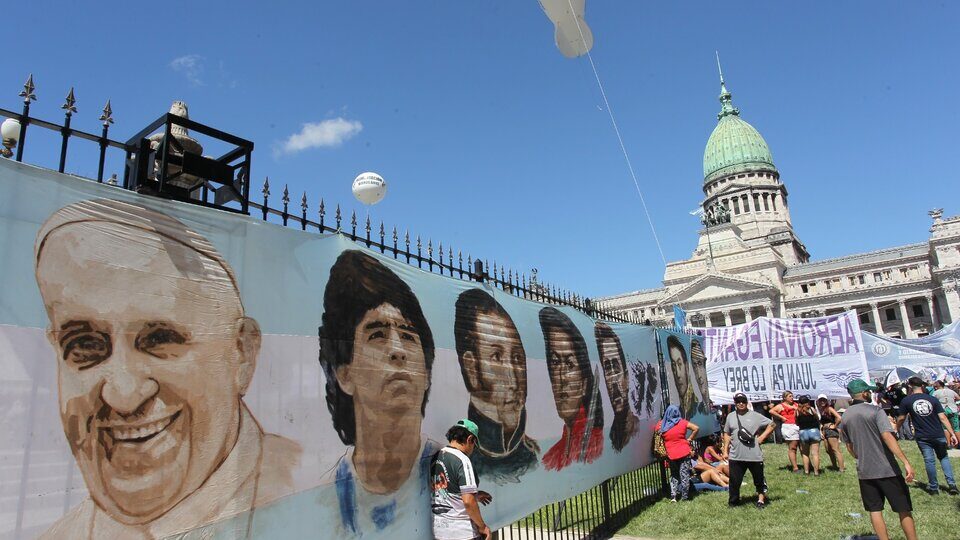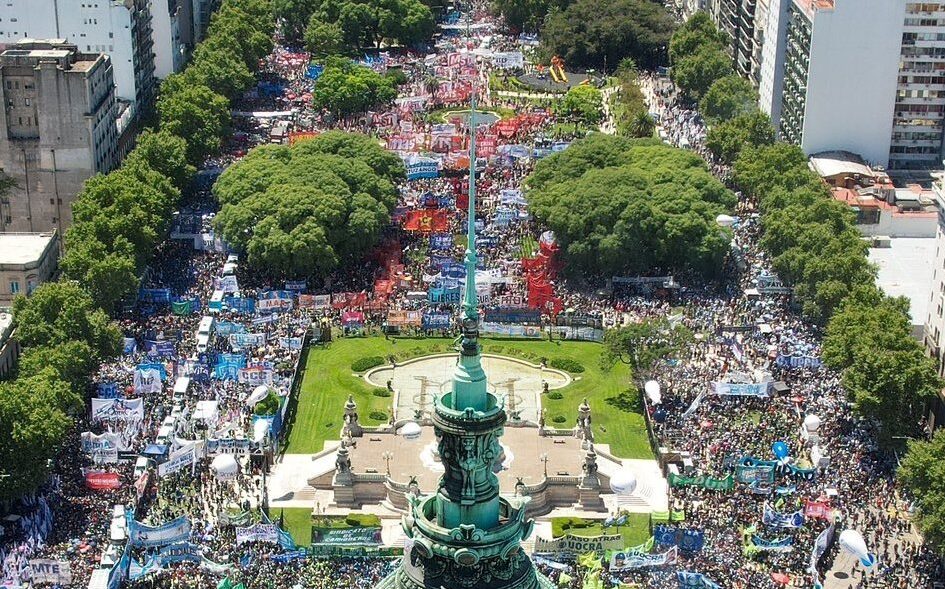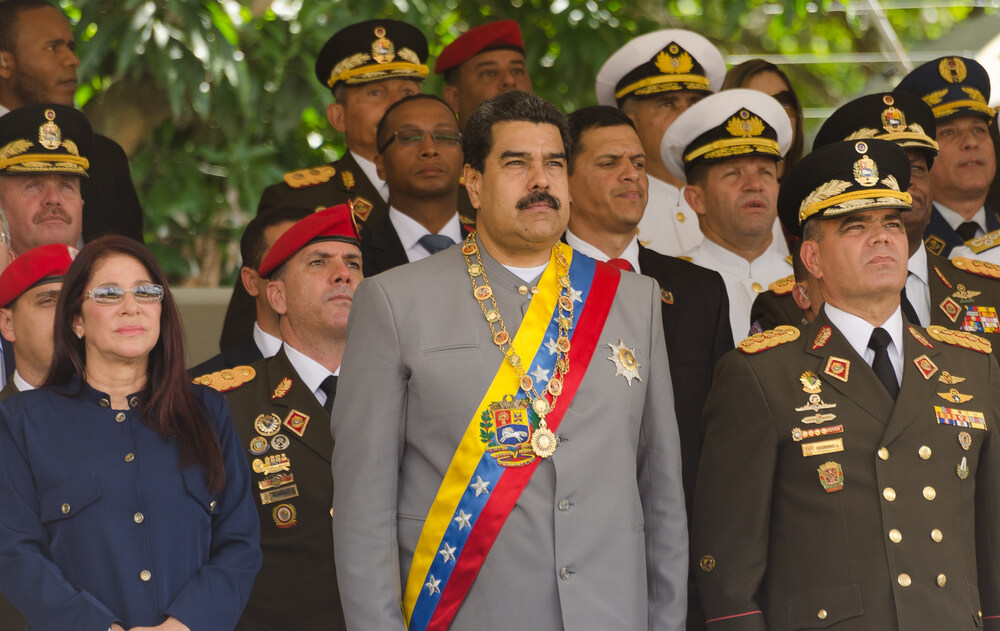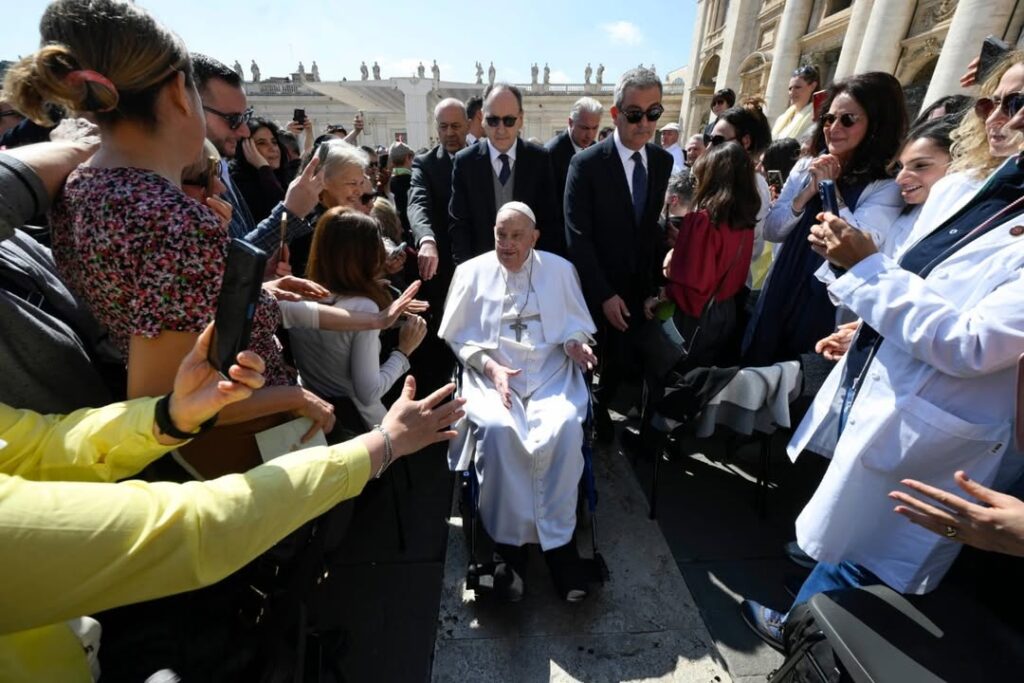Buenos Aires, Argentina — Argentina faced its first national shutdown in five years on Wednesday. The country’s largest union, the General Confederation of Labor (CGT), organized a one-day, nation-wide strike to protest recent proposed labor changes by President Javier Milei.
Crowds gathered in cities across the country and basic services were closed for most of the day.
Public transport, banks, airports, shops and hospitals were all impacted. In addition to the CGT, several other unions, including rural workers, commerce and services, transport, state workers, healthcare, and banks, participated in the strike.
Pablo Moyano, a truckers union leader, addressed a crowd in Buenos Aires on Wednesday. “Every time a liberal or ultra-liberal model wins, the first spending cuts go to the workers.”
According to the CGT, 1.5 million people protested throughout the country; 700,000 in the capital Buenos Aires. Security Minister Patricia Bullrich claimed far fewer, saying 40,000 protested in front of Congress in the capital. Buenos Aires city police have reported at least 80,000 protesters in the Buenos Aires downtown.
Eric Lakner, a freelance video editor who participated in the strike on Wednesday told Argentina Reports that he came to protest to “show that an important part of the society is against Milei’s neoliberal measures.”
He added that if Argentina’s government wants to make reforms, “they should have to make them within the democratic system and not impulsively and without consultation through a decree.”

The strike’s organizers aimed to call attention to a series of economic and labor decrees issued by Milei in the initial days of his presidency, which began last December 10, 2023. They’re calling on members of Congress to sink the proposed measures, as the unions claim they’d be harmful to workers.
On December 20, Milei issued a shock decree aimed at righting Argentina’s embattled economy. In addition to drastic deregulation measures, he also included modifications to laws that would limit union powers.
An Argentine court has temporarily halted elements of Milei’s executive decree, saying that there exists no emergency that would justify the executive branch circumventing Congress to enact the proposed changes. Milei’s government is appealing the court’s ruling.
In addition to the executive decree, Milei’s government also sent a bill to Congress aiming to codify into law many of the economic measures proposed in his decree. The bill would give more power to the president, privatize state-owned companies, limit the right to protest, cut the power of unions, as well as other measures.
Argentina’s lower house, the Chamber of Deputies, is set to debate the bill on January 30.
Argentina ended 2023 with 211% annual inflation, the highest in the world.










